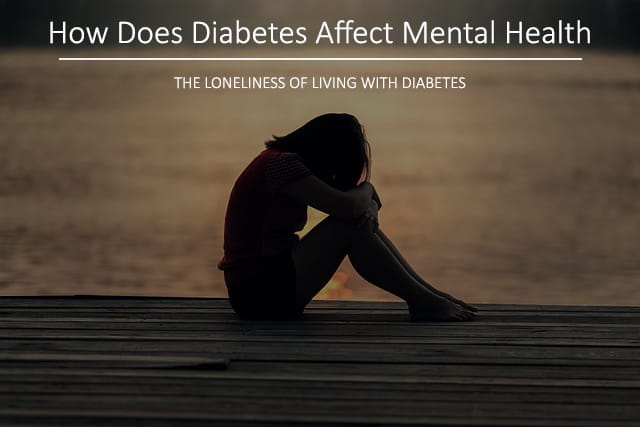Diabetes is not only tough on your body but on your mind as well and many of us ignore it. When the mind gives up, the body does too, and this makes it even more difficult to fight against diabetes. So, it’s time we take our mental health seriously, especially when we have an uphill battle against diabetes.
Depression among diabetics in India has a lot of potential for research. South India was the only part of the country that had very little data on this sensitive topic. It showed that among 45.2% diabetic individuals, 30.9% were depressed. Among percentage of depressed individuals, 14.3% had severe depression and only 11.5% (of 30.9%) individuals took help for their depression.
Stress From Diabetes
Diabetics must check their sugar four to ten times a day, remember to take medicine 15 minutes before meals, regulate their diet and sometimes, despite doing everything their blood sugar remains highs. All this can be extremely stressful especially when we have full time jobs and a life to manage. This is why diabetics complain about the illness getting in the way of their everyday life.
Many struggle to maintain steady jobs and manage diabetes. It is not only time consuming but frequent health check-ups, treatment and equipment may be costly in the long run. All this can be very stressful and it does take a toll on your mental health.
Mood Swings From High Blood Sugar
Diabetes and mental health is a lot like the chicken and the egg; no one knows which came first. Sometimes, mental health is diagnosed well before diabetes but in other cases high and low blood sugar can cause mood swings.
Hypoglycaemia, or the sudden decrease in blood sugar can lead to depression, nausea, lethargy and disorientation whereas hyperglycaemia, or the sudden increase in blood sugar can lead to anger, anxiety and depression. It is important to document your mental health that happens during these fluctuations to get a better understanding of our diabetes and how it affects out mind.
Self-Management
Every diabetic must know that it is their own responsibility to take care of themselves. Doctors can guide us through the process, prescribe medicine suggest equipment for management, but we are the ones who face the fluctuations and therefore it is our job to manage it. Often times, a new diabetic needs to dedicate hours on research just to understand how to read blood glucose charts, monitor carb intake, check blood sugar periodically and remember to workout. Friends and family can help but it is challenging to take on so many changes at once.
Being responsible and managing every aspect of diabetes can not only be frustrating but lonely as well. Friends and family often struggle to understand how difficult it is to say no to dessert or stop ourself from having one more helping of a delicious meal. They often can’t understand why diabetics are tired more often, which is why many diabetics struggle to keep steady relationships. This can be extremely frustrating and takes a toll on their mental health.
How To Manage Depression And Diabetes
The first and foremost step is to name the feeling. When we are feeling low and unable to work, it is okay to come to terms with the emotion. There are psychologists who specialise on mental health with diabetes, and if you feel it is unbearable, consider meeting a psychologist. Psychologists can help you get in touch with a support group where people with the same problem can come together and understand each other. It is nice to be able to talk about our emotions with like-minded individuals and a support group allows you to do just that.
Many diabetics, struggling with depression, find a sense of relief by maintaining journals. If you like writing, consider keeping a record of your emotions. Write about the events that trigger these emotions and, instead of labelling them as angry, sad, happy, depressed, try to describe each emotion as they come and go. It is interesting how well we can heal ourselves just by journaling our emotions.
Another great way to overcome depression is by taking the time out for a walk or a light workout. When we actively remove ourself from a depressive situation we feel a lot better. So, take out the time for a stroll in a nearby park. Surround yourself with the sounds of the water, the birds and the smell of flowers. All this will help you feel better. Make sure to wear the right foot wear to keep them protecting while you are on your feet.
Diabetes is a difficult illness to handle and when we combine it with depression it becomes near impossible to keep it under control. Just like diabetes, depression is inevitable, it comes and goes without our control. The only way to manage it is by monitoring our emotions just like how one would monitor their blood sugar.
If you want to join a diabetic support group to help you with the situation, we have two groups named below:
It is not easy to live with diabetes and we can all do with a little help.




























